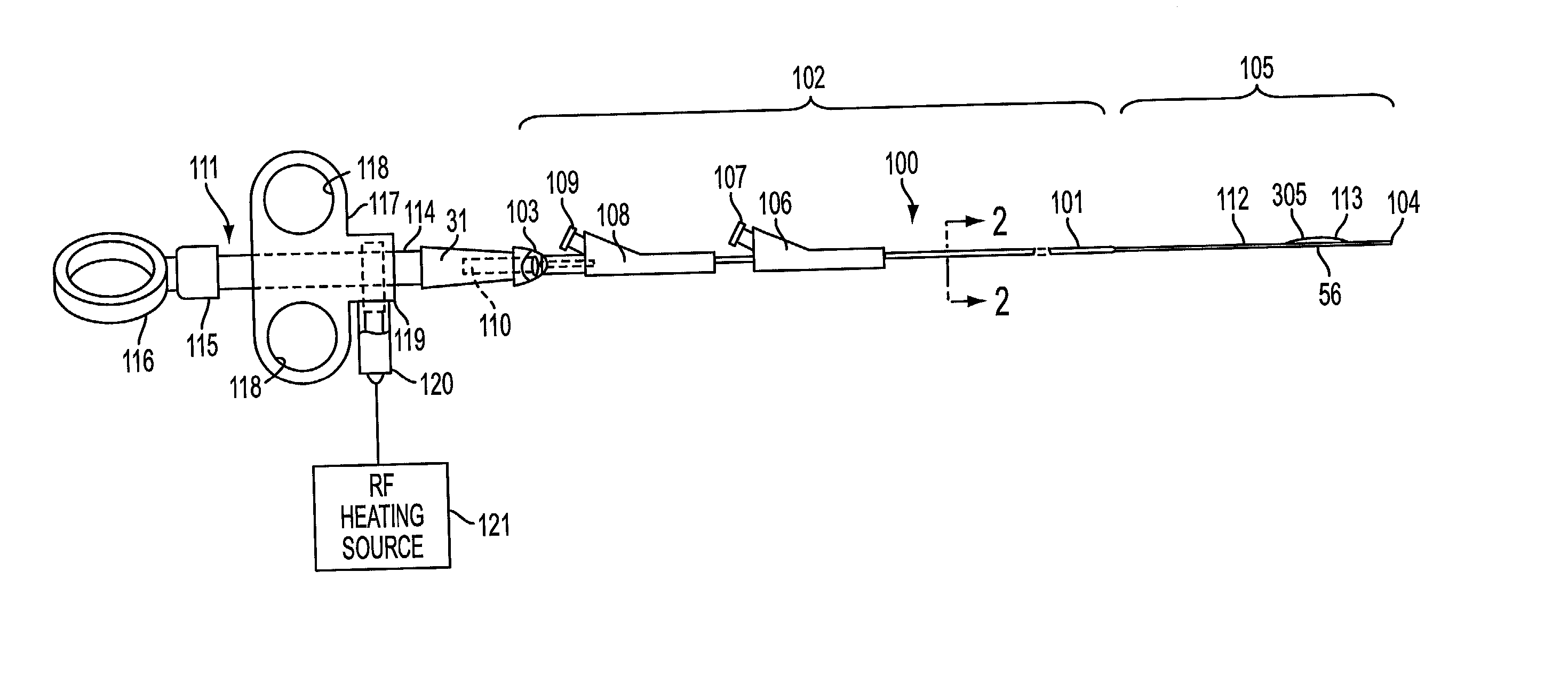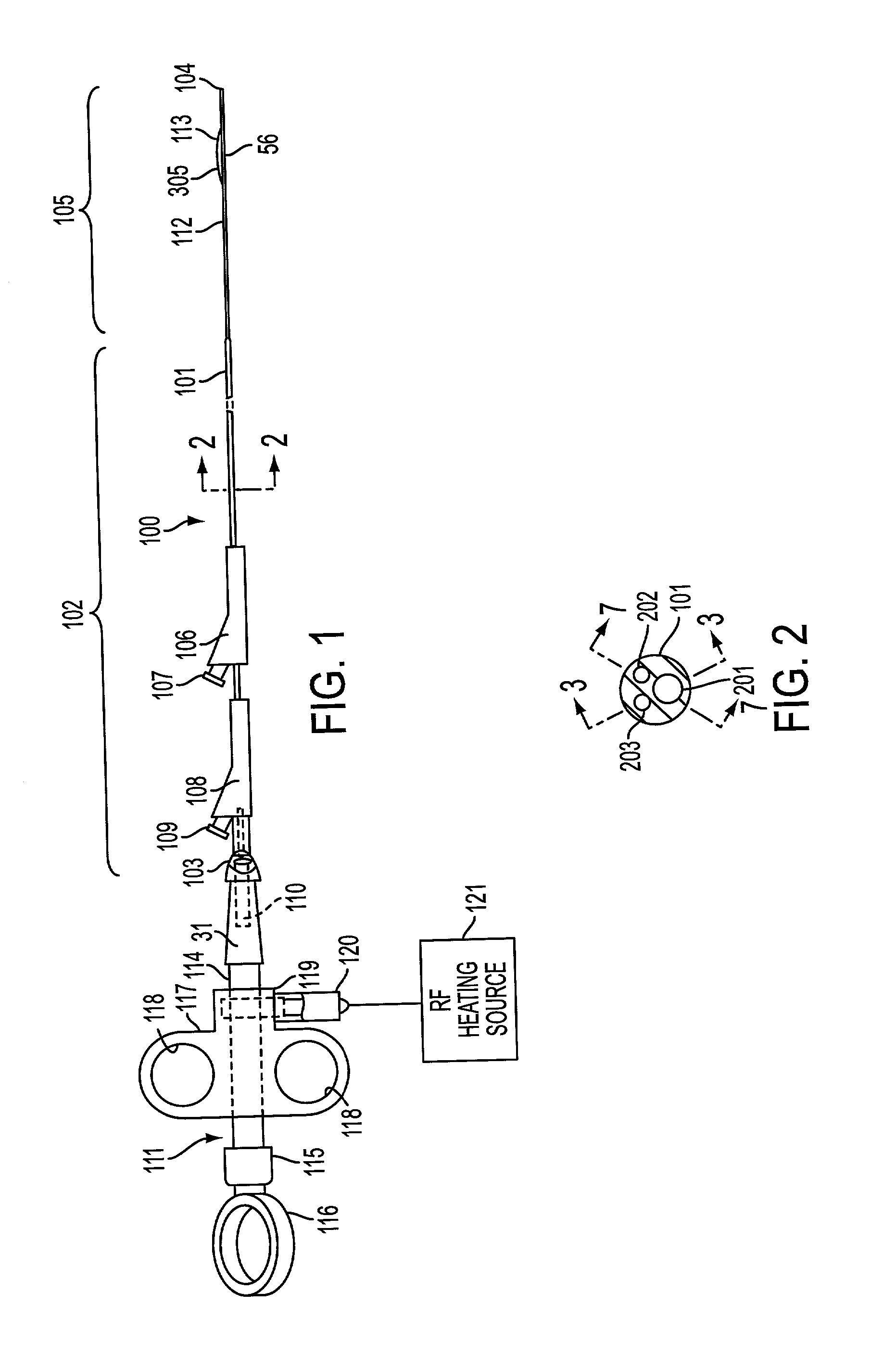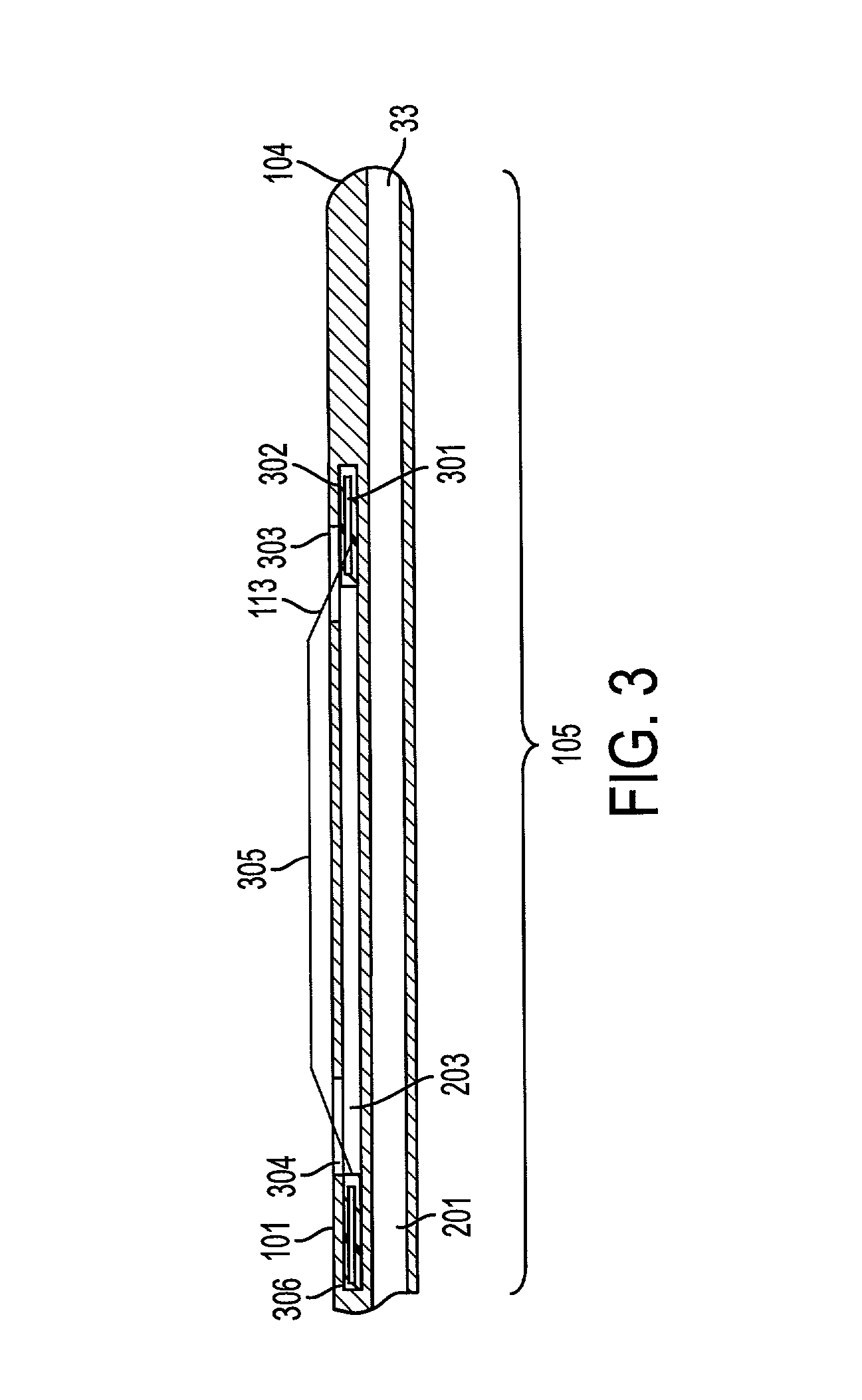Method and apparatus for measuring and controlling blade depth of a tissue cutting apparatus in an endoscopic catheter
a tissue cutting and endoscopy technology, applied in the field of methods and apparatus for measuring and controlling the blade depth of the tissue cutting apparatus in the endoscopy catheter, can solve the problems of increasing patient trauma, low efficacy, and potential adverse reactions to the dissolution agen
- Summary
- Abstract
- Description
- Claims
- Application Information
AI Technical Summary
Problems solved by technology
Method used
Image
Examples
Embodiment Construction
[0031] FIG. 1 depicts catheter apparatus 100 that has the capability of injecting a contrast agent into the biliary tree, accurately positioning a cutting wire, of performing a sphincterotomy and of dislodging a gallstone into the duodenum. Apparatus 100 includes a catheter 101 which, for purposes of definition, includes proximal portion 102 extending from proximal end 103 and distal end 104 with distal portion 105 extending a short distance from distal end 104. In a typical application, the catheter will have a working length of 200 cm and distal portion 105 will have a length of 6 cm to 9 cm. Normally distal portion 105 will have a diameter that is smaller than the diameter of proximal portion 102 to increase the flexibility of distal portion 105. The reduction in diameter also makes distal end 104 less traumatic and allows distal portion 105 to reach smaller passages while allowing the larger proximal portion 102 to provide necessary hoop strength and rigidity, particularly where...
PUM
 Login to View More
Login to View More Abstract
Description
Claims
Application Information
 Login to View More
Login to View More - R&D
- Intellectual Property
- Life Sciences
- Materials
- Tech Scout
- Unparalleled Data Quality
- Higher Quality Content
- 60% Fewer Hallucinations
Browse by: Latest US Patents, China's latest patents, Technical Efficacy Thesaurus, Application Domain, Technology Topic, Popular Technical Reports.
© 2025 PatSnap. All rights reserved.Legal|Privacy policy|Modern Slavery Act Transparency Statement|Sitemap|About US| Contact US: help@patsnap.com



